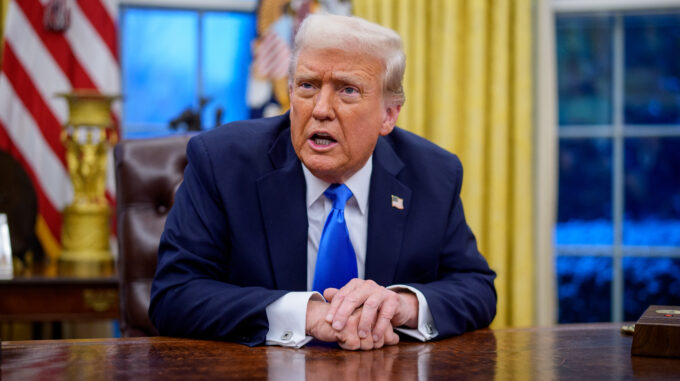CIA secret operations in Venezuela and military threats: a new escalation in regional tensions

On Wednesday, U.S.
President Donald Trump officially confirmed that he authorized covert directives for the Central Intelligence Agency (CIA) to conduct secret operations in Venezuela, openly threatening potential ground attacks on targets within the country.
Responding to questions in the Oval Office, Trump not only affirmed the approval for these missions but also expressed intentions to expand them.
“I authorized this for two reasons: first, our forces have detained some prisoners who crossed into the U.S.
from Venezuela, and second, a large amount of drugs enter through land and sea routes from there, so we will stop the flow on land too,” he stated.
The president also did not hide his considerations about possible military action: “We are considering land strikes because we already have control over maritime areas.” Regarding the issue of removing Venezuelan President Nicolás Maduro, Trump left the answer open, noting that his administration has not issued a direct order for this.
Sources close to the administration indicate that the U.S.
has increased its presence in the Caribbean and Central America to combat drug cartels, many of which are linked to the Venezuelan regime.
Military actions are ongoing: U.S.
Defense Department special units have carried out targeted strikes against ships smuggling drugs in the Caribbean, resulting in over 20 deaths.
While the CIA officially denies direct involvement, it reportedly collaborates with groups tracking targets for potential strikes, raising internal tensions within the U.S.
leadership.
Security advisors are divided over Venezuela policy: some advocate for increased pressure, others prefer diplomatic solutions to prevent further escalation.
Despite sanctions and international restrictions observing Maduro’s regime, protests and repression continue to destabilize the country.
Diplomatic efforts have intensified, but U.S.
tactics remain focused on regional control and drug interdiction, a policy increasingly criticized by international observers and regional allies.

